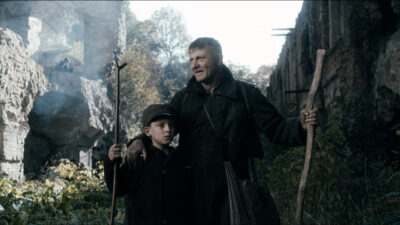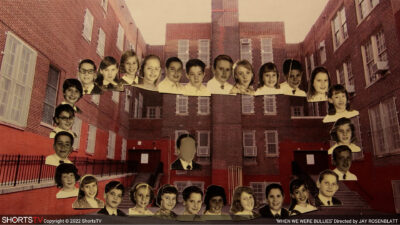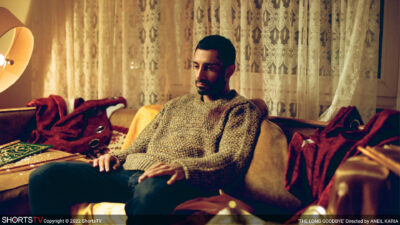On April 1 we’ll open THE ROSE MAKER at the Claremont, Playhouse, Royal and Town Center. Catherine Frot stars as one of France’s greatest artisanal horticulturalists, whose rose business is on the brink of bankruptcy. When her secretary hires three inexperienced ex-convicts, they must team up to rescue the business in this verdant comedy. Enjoy this clip for a whiff:
Moviegoers, last chance to catch the Oscar nominated films in theatres.
Stand with Ukraine through Film: THE GUIDE and Ukraine War relief.
We all know of the tragedy that is happening in Ukraine because of the Russian invasion. Thousands of civilians are dying in the streets while as of today 3,000,000 people are fleeing the country.
Film exhibitors around the country want to do their small part. Working with filmmaker Oles Sanin, who is currently in Ukraine, we have banded together to screen his 2014 Ukrainian film The Guide and will donate 100% of the proceeds to help his fellow Ukrainians. We’ll begin screening the film this Friday at the Monica Film Center. The Guide follows an American boy named Peter and and a blind minstrel, Ivan, who are thrown together by fate during the Stalin-perpetrated genocide in 1930s Ukraine.

Here’s the official website: STAND WITH UKRAINE THROUGH FILM
Here is a message from the director that will precede the screenings:
Here is the film’s trailer:
Brevity is the soul of wit: The 2022 Oscar-nominated short films are now playing everywhere.
This Friday we’ll expand our screenings of the 2022 Oscar-nominated short films — live action, animated and documentary — to almost all our venues so cinephiles from throughout L.A. County and beyond can enjoy them theatrically. Robert Abele of the L.A. Times weighed in on his favorites:
Documentaries: “The Queen of Basketball is a joyous portrait of college legend, breakthrough Olympian, and only ever female NBA draftee Lusia “Lucy” Harris, a gifted athlete without a professional league of her own. Harris died in January, but here she’s a wry chronicler of her underappreciated majesty, making Queen a fitting film obituary. Matt Ogens’ percussively energized, heartfelt Audible takes us into the tightknit huddle of high schoolers in the successful football program at the Maryland School for the Deaf, their Big Game preparation a poignant metaphor for the feelings of pride, loss and community that make them different from, but also no different than, any teenager facing an uncertain world…Looking back on a childhood choice (and seizing on a wild coincidence) is the province of veteran experimental filmmaker Jay Rosenblatt’s When We Were Bullies, a wonderfully intimate, collage-styled reckoning with memory, hurt and the ethics of storytelling.”

Live action: “The nerviest conscience buster is Aneil Karia’s The Long Goodbye, a companion film to actor/rapper Riz Ahmed’s same-named album. He plays one of many members of a large British-South Asian family in a bustling house preparing for a wedding until a violent reality intrudes, leading to a wall-breaking rap about race, history and nationalism that Ahmed delivers like a frontline soliloquy. On the more Black Mirror end of things is KD Davila’s Kafkaesque satire Please Hold, which fuses our blind fascination with all things contactless, online and privatized with our inability to reform a byzantine justice system, following it to a not-too-far-off conclusion for someone like innocent Latino 20-something Mateo (Erick Lopez).”

Animation: “Lives marred by cruelty factor into the hand-drawn Boxballet and stop-motion Bestia. The former, from Anton Dyakov, brings together a hulking, banged-up pugilist and an up-and-coming ballerina for a wordless-but-not-soundless meeting of sensitive souls. The latter is Chilean animator Hugo Covarrubias’ slow-burning, textural glimpse — set during the country’s military dictatorship — of the corrosive duality in a policewoman’s daily life with her dog, her body and her demons. The eerie airlessness of the dollhouse-like settings and the porcelain shine on the puppets are memorably unsettling.’

“Influential designer/animator Alberto Mielgo, who sparked the aesthetic of Into the Spider-Verse, is another wizard with texture and visual depth. His meditative The Windshield Wiper poses the question “What is love?” to a man in a café, then seeks clues in a series of vignettes with couples around the world. Mielgo’s urbanized hybrid of the painterly and the digitized is hypnotic and its own example of an artist’s love.’

“British animator Joanna Quinn’s enthusiasm for the wiggly expressiveness of traditional animation, meanwhile, makes her latest romp starring middle-aged feminist factory worker Beryl, Affairs of the Art, a raucous delight. (The last Beryl short was in 2006.) Now hellbent on becoming a “hyperfuturist artiste,” drawing-obsessed Beryl (voiced as ever by Menna Trussler) relays a family history of sibling rivalry, imperiled pets, morbid curiosities and eccentric tastes, while Quinn’s masterful caricatures and love of bulbous bodies in motion would make Da Vinci blush, laugh and be jealous simultaneously. Drawing becomes riotously, beautifully alive in Quinn’s vaudeville of aging and anatomy, but so does the wonderfully personal message delivered through her never-too-late-to-try heroine: There’s power in passion, whenever it strikes you in life.”

Please note that the animated shorts are not MPAA rated but if they were they’d likely receive an R or NC-17 rating. Only adults will be admitted.
The Top Ten Films of 2021 contest results are in.
“Beautiful…timely” new documentary about Laemmle Theatres ‘Only in Theatres’ premieres at the Santa Barbara International Film Festival.
The new documentary about Laemmle Theatres, ONLY IN THEATERS, was begun just before the pandemic began and completed last year. It recounts the company’s history and features interviews with all the surviving players as they face the seismic changes in the film exhibition industry. The family members behind this multigenerational business—whose sole mission has been to support the art of film—remain determined to see it survive, despite enormous challenges. From the festival program:
“Laemmle Theaters, the beloved L.A. art house cinema chain, has an astonishing legacy with ties to the origins of Hollywood. This is a story about a family business and their determination to survive in the face of headlines that question the future of movie theaters. For more than 84 years and through three generations, this family’s personal mission has been to elevate the art of films and the artists who make them.”
ONLY IN THEATRES premieres this Saturday night at the prestigious Santa Barbara International Film Festival. There is a second screening on Monday, March 7. Programming Director Claudia Puig was quoted in the L.A. Times today calling it “a beautiful film, and a timely one.”
Follow the film on Facebook for updates on future screenings at https://www.facebook.com/onlyintheaters and check out the trailer:
Moviegoing safely.
Moviegoers, start your guesses: The Umpteenth Annual Laemmle Oscar Contest has begun.
The Oscar nominations are out, and in spite of the fact that Bradley Cooper was robbed of one and possibly even two nominations, it’s time for our Umpteenth Annual Laemmle Oscar Contest! Correctly guess how the Academy will vote and win movie passes good at all Laemmle venues and Laemmle Virtual Cinema.
- « Previous Page
- 1
- …
- 20
- 21
- 22
- 23
- 24
- …
- 69
- Next Page »

